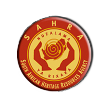THIS IS THE ARCHIVE FOR SAHRIS 1.0
THIS SITE IS NOW AN ARCHIVE AND IS NOT SUITABLE FOR MAKING APPLICATIONS
Please be aware that no content and application creation or changes to information on this version of SAHRIS will be retained.
To make applications or utilise SAHRIS for the creation of information, please use the new site:
https://sahris.org.za
Changes to SAHRIS!
The South African Heritage Resources Information System (SAHRIS) has undergone a generational upgrade and restructure. These changes to the site include, but are not limited to:
- A new & modernised look and layout
- Improved site usage flows with respect to applications and content creation
- Improved site performance and stability
Launch for the new version of SAHRIS occurred on Monday the 30th of October 2023.
The new site can be found here:
SAHRIS | SAHRIS
DECLARATION OF THE WAAIHOEK WESLEYAN MISSION CHURCH (ALSO REFERRED TO AS THE WESLEYAN SCHOOL) AS NATIONAL HERITAGE SITE
- 60 reads
SiteReference:
Organisation:
DeclarationType:
GazetteNo:
Gazette Date:
NoticeNo:
Notice Date:
Gazette Notice Status:
- Current
GazetteFile:
| Attachment | Size |
|---|---|
| 245.14 KB |
DeedsNo:
DiagramNo:
ShortDescription:
By virtue of the powers vested in the South African Heritage Resources Agency, in terms of section 27 (5) of the National Heritage Resources Act (No. 25 of 1999) SAHRA hereby declares the Waaihoek Wesleyan Church (also referred to as the Wesleyan School), Erf 3/1909;Waaihoek; Bloemfontein as a National Heritage Site
FullDescription:
The Wesleyan Church in Waaihoek, Bloemfontein is the birth place of the South African Native National Congress (SANNC) which was formed in 1912. Later, in 1923 the SANNC became the African National Congress (ANC). The ANC became the largest liberation organizations in the struggle for freedom and justice in South Africa. The exclusion of Africans from the meaningful political participation in the negotiations leading up to and in the envisaged Union of South
Africa in 1910 galvanised different African political formations, to forge a unified political movement that would challenge the exclusion of Black people.
On 8th January 1912, a group of Black delegates from the four provinces met in Waaihoek, Bloemfontein to propose a means to object to the draft South Africa Act, and Union Constitution. This meeting was the most significant in the history of Black protest politics as it was the first joint meeting of Black representatives from all four self-governing British colonies and marked the birth of the ANC. Amongst the delegates were the celebrated black leaders Saul Msane, Josiah Gumede, John Dube, Pixley ka Isaka Seme and Sol Plaatje along with chiefs, people's representatives, and church organizations, and other prominent individuals to bring all Africans together as one people to defend their rights and freedoms The convention took place at the Wesleyan School Church in Waaihoek, which is now a tangible representation of that pivotal meeting
